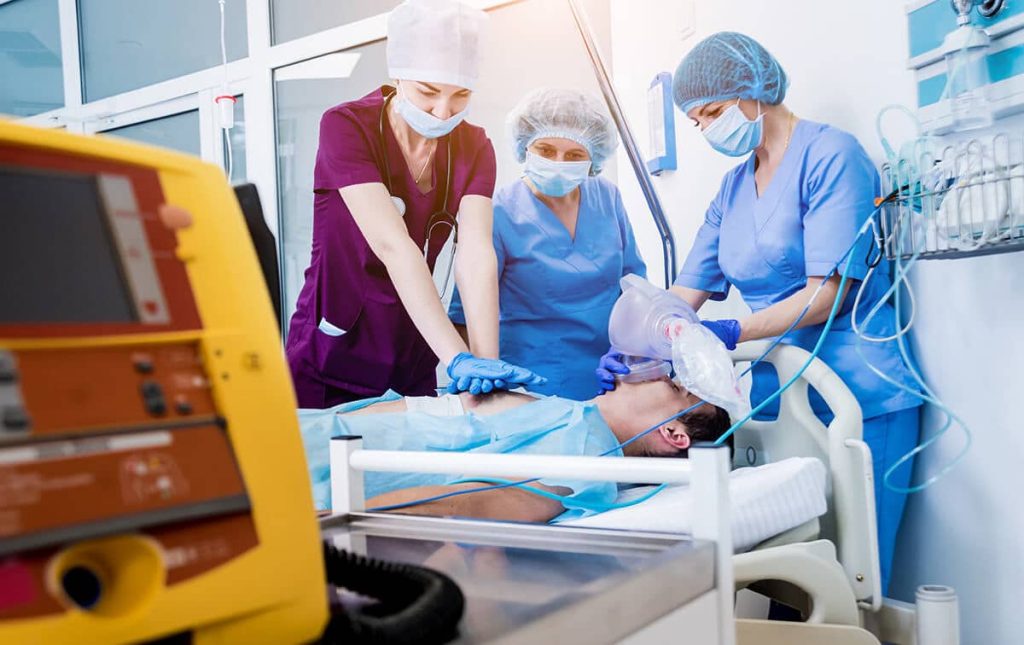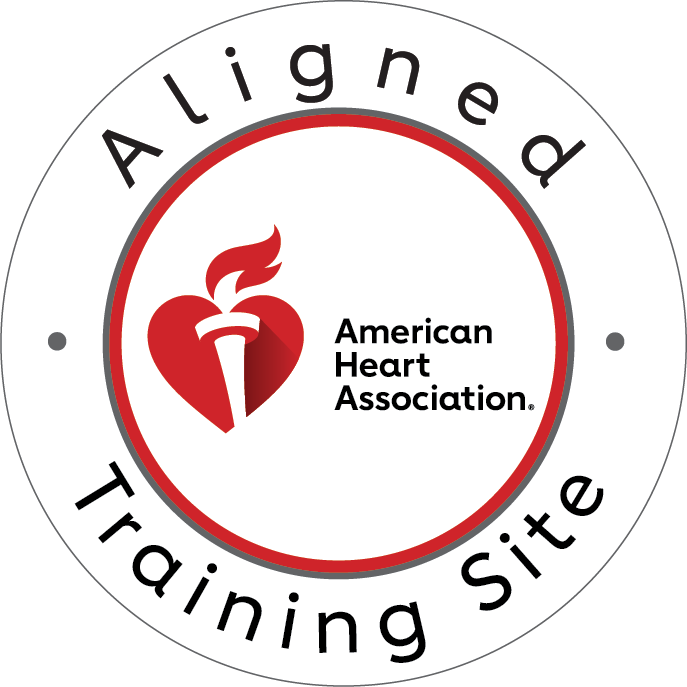Introduction
In emergencies where every second counts, having proper training in cardiopulmonary resuscitation (CPR) can mean the difference between life and death. CPR certification is essential for individuals working in various fields, including healthcare, emergency services, and public safety. These certifications are offered at different levels, each designed to equip professionals with the necessary skills and knowledge to respond effectively in cardiac emergencies.
Among the various levels of CPR certification, Advanced Cardiac Life Support (ACLS) stands as the highest and most comprehensive training program. This advanced certification is tailored for healthcare professionals who may encounter cardiac emergencies and need to provide advanced life support measures beyond basic CPR.
Overview of CPR Certification Levels CPR certification levels ranges from basic training for laypersons to more advanced courses for healthcare professionals. The most common levels include:
Basic Life Support (BLS): This entry-level certification teaches the fundamentals of CPR, including chest compressions, rescue breaths, and automated external defibrillator (AED) use. It is suitable for healthcare providers, first responders, and anyone interested in learning lifesaving skills.
Advanced Cardiovascular Life Support (ACLS): This advanced certification builds upon BLS and focuses on the management of cardiac emergencies, including ECG interpretation, airway management, and advanced cardiovascular life support techniques.
Pediatric Advanced Life Support (PALS): This specialized certification equips healthcare professionals with the skills to recognize and respond to life-threatening emergencies in infants and children.
While each level serves a critical purpose, ACLS stands out as the highest and most comprehensive CPR certification, encompassing a wide range of advanced life support techniques and knowledge.
Advanced Cardiac Life Support (ACLS)
Advanced Cardiac Life Support (ACLS) is the highest level of CPR certification, designed specifically for healthcare professionals who may encounter cardiac emergencies in their line of work. This comprehensive training program equips participants with the skills and knowledge necessary to effectively manage and treat various life-threatening cardiovascular emergencies, such as cardiac arrest, acute coronary syndromes, and stroke.
The ACLS course is typically more intense and extensive compared to other CPR certification levels, covering a wide range of advanced topics and techniques. Participants receive thorough instruction on airway management, ECG interpretation, pharmacological interventions, and advanced cardiovascular life support algorithms.
One of the key components of ACLS training is the ability to recognize and interpret ECG rhythms accurately. Healthcare professionals learn to identify various dysrhythmias, such as ventricular fibrillation, ventricular tachycardia, and bradycardia, and respond with appropriate interventions. This skill is crucial in determining the underlying cause of a cardiac emergency and initiating prompt and effective treatment.
In addition to ECG interpretation, ACLS training covers advanced airway management techniques, including endotracheal intubation and alternative airway devices. Participants also learn how to administer and manage emergency medications, such as vasopressors, antiarrhythmics, and fibrinolytics, which are essential in treating cardiac emergencies.
Furthermore, ACLS training emphasizes the importance of effective team dynamics and communication during high-stress situations. Healthcare professionals learn to work collaboratively, assign roles, and coordinate care within a multidisciplinary team to ensure efficient and organized responses during cardiac emergencies.
By completing the ACLS course, healthcare providers gain the knowledge and confidence to respond promptly and effectively in life-threatening cardiovascular emergencies, ultimately increasing the chances of positive patient outcomes.
Prerequisites and Target Audience
To enroll in an Advanced Cardiac Life Support (ACLS) course, participants must meet specific prerequisites. One of the primary requirements is holding a valid Basic Life Support (BLS) certification, as ACLS builds upon the foundational skills learned in BLS training.
Additionally, ACLS courses are typically targeted toward healthcare professionals who may encounter cardiac emergencies in their line of work. The target audience for ACLS certification includes, but is not limited to:
- Physicians: ACLS certification is essential for physicians working in emergency departments, intensive care units, cardiac care units, and other critical care settings where they may encounter patients experiencing cardiac emergencies.
- Nurses: Registered nurses, especially those working in critical care areas, emergency departments, and cardiac units, benefit greatly from ACLS training. It equips them with the knowledge and skills to provide advanced life support measures and collaborate effectively with other healthcare professionals during cardiac emergencies.
- Paramedics and Emergency Medical Technicians (EMTs): As first responders, paramedics and EMTs are often the first line of defense in cardiac emergencies. ACLS certification ensures they have the necessary skills to initiate advanced life support measures and stabilize patients before transporting them to a healthcare facility.
- Respiratory Therapists: Respiratory therapists play a crucial role in managing airway emergencies and providing respiratory support during cardiac events. ACLS training prepares them to recognize and respond to cardiopulmonary complications effectively.
- Other Healthcare Professionals: ACLS certification can benefit various other healthcare professionals, including physician assistants, nurse practitioners, and those working in critical care transport or emergency response teams.
By meeting the prerequisites and belonging to the target audience, healthcare professionals can enroll in ACLS courses and gain the advanced knowledge and skills required to provide comprehensive care during cardiac emergencies, ultimately improving patient outcomes.
Course Content and Certification Process
The Advanced Cardiac Life Support (ACLS) course is designed to provide comprehensive training in managing cardiac emergencies. The course content typically includes both theoretical and practical components, ensuring that participants gain the necessary knowledge and skills.
Theoretical Components
- Review of basic life support (BLS) principles and techniques
- Understanding of the chain of survival in cardiac emergencies
- Pathophysiology of cardiovascular emergencies
- ECG interpretation and recognition of dysrhythmias
- Pharmacological interventions for cardiac emergencies
- Advanced airway management techniques
- Management of acute coronary syndromes, stroke, and other cardiovascular emergencies
- Team dynamics and communication during resuscitation efforts
Practical Components:
- Hands-on practice of advanced airway management techniques (e.g., endotracheal intubation, supraglottic airway devices)
- ECG rhythm recognition and interpretation exercises
- Simulation scenarios involving cardiac arrest and other cardiac emergencies
- Demonstration and practice of advanced cardiovascular life support algorithms
- Team-based resuscitation drills and scenarios
Upon completion of the course, participants must successfully pass written and practical exams to obtain ACLS certification. The written exam typically consists of multiple-choice questions that assess the participant’s knowledge of the course material, including ECG interpretation, pharmacology, and treatment algorithms.
The practical exam involves demonstrating proficiency in various skills, such as airway management, ECG rhythm recognition, and performing appropriate interventions during simulated cardiac emergencies. Participants must exhibit mastery of these skills to meet the certification requirements.
Once certified, ACLS providers receive a course completion card or certificate, which is typically valid for two years. To maintain their certification, healthcare professionals must complete an ACLS recertification course before their certification expires.
The certification process for ACLS ensures that healthcare professionals have the necessary knowledge, skills, and competence to provide advanced life support measures during cardiac emergencies, ultimately improving patient outcomes and saving lives.
Importance of ACLS Certification
Advanced Cardiac Life Support (ACLS) certification holds significant importance in healthcare settings, particularly in environments where cardiac emergencies are likely to occur. Obtaining and maintaining this highest level of CPR certification is crucial for several reasons:
Improved Patient Outcomes
Healthcare professionals with ACLS certification are better equipped to recognize and respond to life-threatening cardiac emergencies promptly and effectively. Their advanced knowledge and skills in areas such as ECG interpretation, airway management, and pharmacological interventions can significantly improve patient outcomes by initiating timely and appropriate treatment.
Enhanced Preparedness
Cardiac emergencies can occur unexpectedly, and having ACLS-certified healthcare providers on-site ensures a higher level of preparedness. These professionals are trained to remain calm under pressure, work collaboratively as a team, and follow evidence-based algorithms to manage complex cardiac situations.
Increased Confidence
ACLS training provides healthcare professionals with the confidence necessary to handle high-stress situations involving cardiac emergencies. By gaining extensive knowledge and practical experience during the course, they develop a sense of competence and assurance in their abilities to provide advanced life support measures.
Compliance with Standards
Many healthcare facilities and organizations require their staff, particularly those working in critical care areas, to maintain ACLS certification. This certification demonstrates compliance with industry standards and best practices, ensuring that patients receive the highest quality of care during cardiac emergencies.
Continuous Professional Development
ACLS certification is not a one-time achievement but rather a continuous process of learning and skill development. Healthcare professionals must renew their certification periodically, which encourages ongoing education and staying up-to-date with the latest advancements in cardiac life support techniques and guidelines.
By prioritizing ACLS certification, healthcare organizations, and professionals demonstrate their commitment to providing exceptional patient care and increasing the chances of survival for individuals experiencing cardiac emergencies. This highest level of CPR certification is a vital component in maintaining a high standard of emergency preparedness and ensuring the best possible outcomes for patients.
Renewal and Recertification
Like many professional certifications, Advanced Cardiac Life Support (ACLS) requires periodic renewal and recertification to ensure that healthcare providers maintain their knowledge and skills at the highest level. ACLS certifications are typically valid for two years from the date of issue.
As the certification expiration date approaches, healthcare professionals must complete an ACLS recertification course to renew their credentials. The recertification process aims to reinforce the knowledge and skills acquired during the initial ACLS training while also introducing any updates or changes to the guidelines and protocols.
The ACLS recertification course is typically shorter in duration than the initial certification course, as it focuses on reviewing the core concepts and skills rather than introducing entirely new material. However, the course content may vary depending on the changes or updates made to the ACLS guidelines by organizations such as the American Heart Association (AHA) or the International Liaison Committee on Resuscitation (ILCOR).
During the recertification course, healthcare professionals will participate in both theoretical and practical components, similar to the initial certification process. They will review ECG interpretation, pharmacological interventions, advanced airway management techniques, and cardiac emergency management algorithms. Additionally, hands-on practice and simulation scenarios will be included to reinforce practical skills and decision-making abilities.
Upon successful completion of the recertification course, participants will be required to pass written and practical exams, just as they did for their initial certification. Once they meet the recertification requirements, their ACLS certification will be renewed for another two years.
Healthcare professionals must prioritize ACLS renewal and recertification to ensure they remain up-to-date with the latest evidence-based practices and guidelines. Maintaining a current ACLS certification demonstrates a commitment to providing the highest level of care during cardiac emergencies and enhances patient safety and outcomes.
Conclusion
In the realm of emergency medical care, having the highest level of CPR certification is of paramount importance. Advanced Cardiac Life Support (ACLS) stands as the pinnacle of CPR training, equipping healthcare professionals with the advanced knowledge and skills necessary to handle the most critical cardiac emergencies effectively.
If you are a healthcare provider in the Cincinnati area, it is crucial to prioritize obtaining and maintaining ACLS certification. By doing so, you demonstrate your commitment to delivering exceptional patient care and increasing the chances of saving lives during cardiac crises.
CPR Cincinnati, an American Heart Association training site, offers comprehensive CPR certification Cincinnati and ACLS certification courses. Their stress-free and hands-on classes provide the ideal environment to master ECG interpretation, advanced airway management techniques, pharmacological interventions, and evidence-based cardiac emergency algorithms.
Don’t wait – enroll in CPR Cincinnati’s ACLS certification Cincinnati program today and become a vital asset in your healthcare facility’s emergency response team. Gaining this highest level of CPR certification will not only enhance your professional credentials but also instill confidence in your ability to provide life-saving care when it matters most.
Remember, pursuing continuous learning and skill development through ACLS recertification is essential to stay up-to-date with the latest advancements in cardiac life support. Commit to excellence by prioritizing your ACLS certification Cincinnati and contributing to the overall quality of care and patient safety within the healthcare community.
Take action now and join the ranks of highly trained professionals dedicated to saving lives. Contact CPR Cincinnati to begin your journey toward ACLS certification Cincinnati and become a true champion in emergency medical care.





